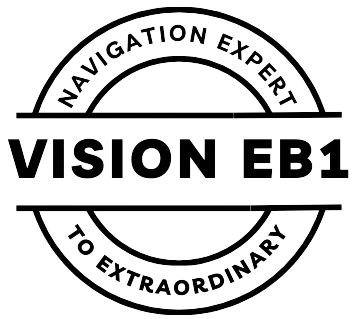Paving the Path to a Green Card: A Guide for International Student Graduates with Research Backgrounds
As an international student who has completed your education in the United States, you’ve invested years of hard work, countless hours in research labs, and perhaps even authored publications. You’ve pushed boundaries in your field, made significant contributions, and built a solid academic foundation. But when it comes to securing a green card and building a future here, the path often seems uncertain and daunting.
Many international student graduates find themselves caught in visa dilemmas. You may feel pressured to accept any job offer just to maintain your status, or feel restricted by the narrow opportunities of OPT (Optional Practical Training) and H1B, which come with their own uncertainties. Your academic achievements and research excellence might seem undervalued, leaving you questioning whether there’s a viable pathway to permanent residency.
But there’s good news: If you have a strong research mindset and notable achievements, you could be eligible for the EB1A – Extraordinary Ability category. The EB1A could potentially fast-track your path to a green card, allowing you to bypass the typical work visa hurdles and secure your future in the United States more quickly.
The Challenge of Current Visa Options
The current visa landscape can be unforgiving for international students. Many are caught in the yearly H1B lottery, with odds stacked against them. Even if successful, the wait for an EB2 or EB3 green card can stretch for several years, especially for nationals from countries like India and China, who face decades-long backlogs. The uncertainty around maintaining your legal status, switching jobs, or even taking on freelance research work can stifle your potential and prevent you from fully utilizing your skills.
What Makes EB1A a Game-Changer for Research Graduates?
The EB1A category is often viewed as reserved for seasoned professionals or those with decades of experience, but that’s a misconception. Many young international graduates with research backgrounds, postdoctoral achievements, or those who have displayed excellence through research presentations, impactful projects, or mentorship roles can qualify.
While the bar for EB1A is high, it’s attainable for individuals with a research-driven mindset and a solid track record in their academic or professional field. This category focuses on extraordinary ability, not just years of experience or seniority. If you can prove that you have made significant contributions to your area of expertise, you could qualify even without a long career history.
Key Advantages of the EB1A for Research Graduates
- No Employer Sponsorship Required
Unlike other employment-based visas, you can self-petition for the EB1A. You don’t need a job offer or employer sponsorship, which gives you freedom to pursue research roles, academic positions, or entrepreneurial ventures. - Faster Green Card Process
The EB1A is part of the first employment preference category, which generally has shorter waiting times compared to the EB2 or EB3 categories. This means you could potentially secure a green card faster, bypassing the decades-long waits that many international graduates face. - Flexibility to Change Roles
Once you have a green card, you are no longer tied to a specific employer or role. This flexibility allows you to focus on research that truly interests you, collaborate with diverse institutions, or even start your own research-based business. - No PERM Labor Certification Required
The EB1A does not require a labor certification, meaning you won’t need to go through the complex and time-consuming PERM process that is mandatory for EB2 or EB3 categories.
Understanding the Criteria: More Than Just Publications
Many international graduates wrongly assume that only those with numerous publications, patents, or high-profile awards can qualify for EB1A. While these achievements certainly strengthen an application, the USCIS considers a broader range of evidence. Here’s how research graduates can build a strong case:
- Original Contributions: Have your research findings introduced new methodologies, theories, or technologies in your field? Any original work that has had a significant impact can serve as strong evidence.
- Authorship or Presentation: Even if you don’t have extensive publications, presenting your research at national or international conferences or serving as a lead researcher in projects can highlight your expertise.
- Membership in Prestigious Organizations: Are you a member of professional organizations that require high levels of achievement for admission? Even student memberships in recognized associations can help.
- Peer Review and Judging Roles: Have you been invited to review others’ work or judge competitions? Serving in these capacities can demonstrate your standing in your field.
- Awards or Recognitions: Any academic awards, research grants, or recognitions that set you apart can serve as evidence of your extraordinary ability.
EB1A is a Viable Pathway—Even Without Decades of Experience
The EB1A is not just for tenured professors or Nobel Prize winners. Many international student graduates, postdoctoral researchers, and early-career professionals have succeeded in obtaining EB1A green cards by presenting a strong narrative and the right mix of evidence. If you have a deep passion for your field and can showcase your research impact, the EB1A could be within your reach.
Connect with Vision EB1 to Learn More
At Vision EB1, we understand the unique challenges international graduates face. Our goal is to help you navigate the complexities of the EB1A category, demystify the process, and guide you in building a strong case that highlights your research achievements. You don’t need decades of experience—just a clear focus on what sets you apart.
Ready to explore your options? Reach out to our team today and take the first step toward securing your future in the United States. Visit Vision EB1 to learn more and start paving your path to permanent residency!





